
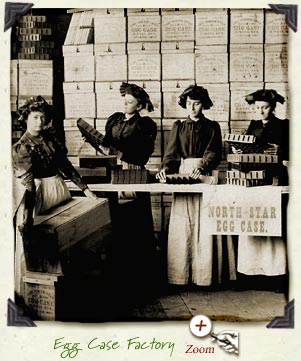
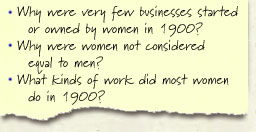

Why were there very few businesses started or owned by women in 1900?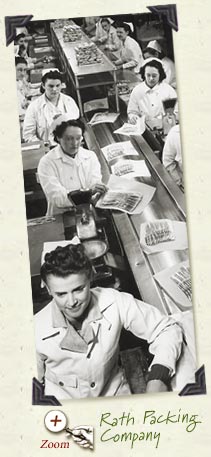 At this time women did not have the opportunities for work that women do today. Women did not have equal rights with men. Married women were usually expected to work in their homes but not in business and industry. When women did work in industry it was often in a job that was considered “women’s work” such as a garment factory running a sewing machine.
At this time women did not have the opportunities for work that women do today. Women did not have equal rights with men. Married women were usually expected to work in their homes but not in business and industry. When women did work in industry it was often in a job that was considered “women’s work” such as a garment factory running a sewing machine.
In this case many women would work together. Women would almost never work side by side with men in a factory setting.
Women could not apply for most jobs. When unmarried women did get work outside of their homes, they were often paid less than what men received for the same work.
Why were women not considered equal to men?
It wasn’t until the 19th Amendment to the U.S. Constitution in 1920 that women won the right to vote. It was argued that women didn’t want to vote, that they didn’t have the knowledge to be informed voters or that they couldn’t serve in the military. Women were thought to be weaker and incapable of performing leadership roles. Women were valued in their homes, but not usually in public life.
What kinds of work did most women do at this time?
Most women worked in their home or another person’s home. Unmarried women often worked as hired help in the home of another family. They cleaned, cooked, ironed, canned, hauled water, washed clothes and did everything that needed to be done in the home—often without machines to make the work easier.
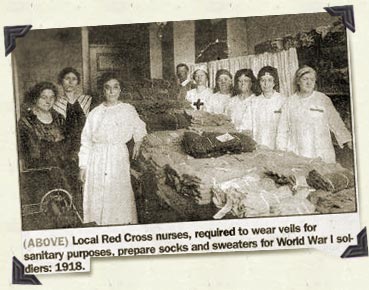
But many unmarried women taught school. This was one job outside the home that provided women with opportunities for leadership. Being a school teacher allowed women respect in their community. But if a female teacher married she was expected to stop teaching.
Some unmarried women found work in businesses such as the North Star Egg Case Company in Waterloo.
Later, unmarried women found work in businesses such as the Waterloo Courier.
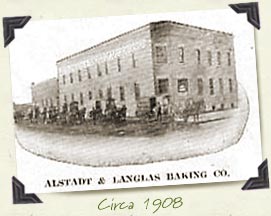
Source: John C. Hartman's History of Black Hawk County, Iowa, and its people, Volume 2, published in 1915
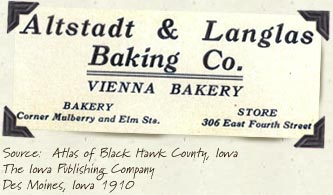
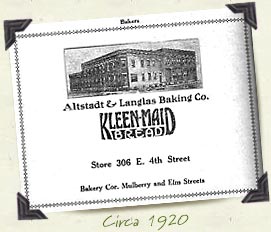
George P. Beck started the first sash and door factory in Black Hawk County, located on what was then the site of The Nauman Company
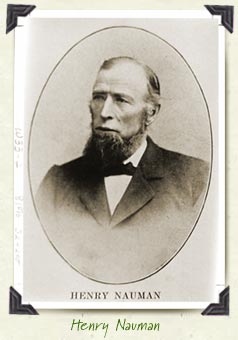
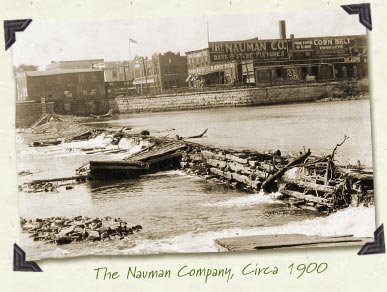
Source: "History of Black Hawk County and Representative Citizens" by Isaiah Van Metre, 1904.
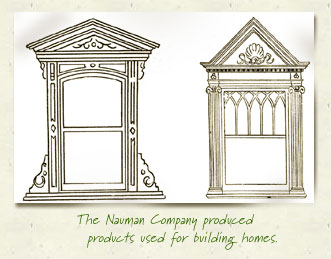
From: Explorations in Iowa History Project, University of Northern Iowa.
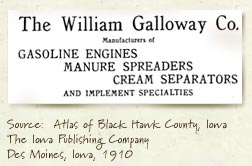
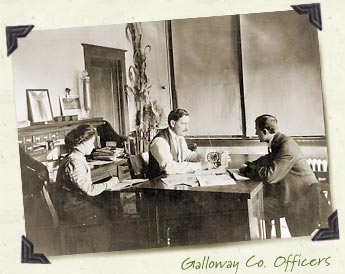
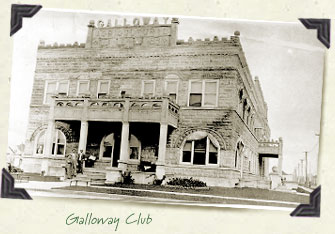
Source: The Waterloo Daily Courier, August 5, 1922.
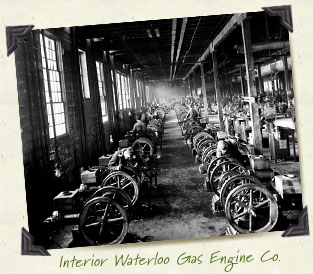
Source: John C. Hartman's History of Black Hawk County, Iowa, and its people, Volume II, 1915.
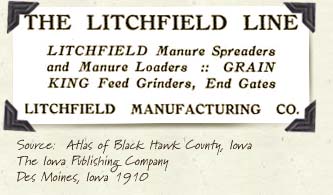
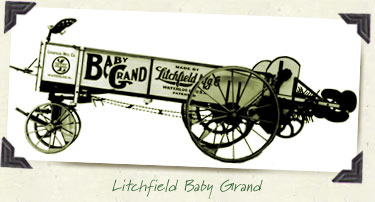
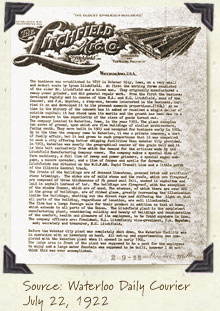
In 1903, William A. Welty was a blank book salesman and auditor for the firm of Matt Parrott & Sons. 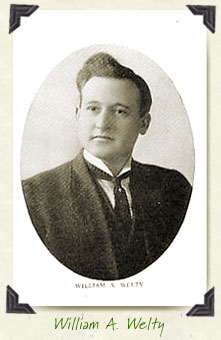 He also sold fountain pens for the company.
He also sold fountain pens for the company.
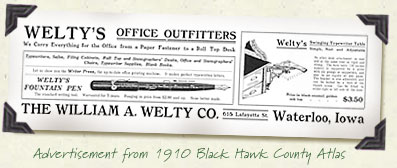
Source: John C. Hartman's History of Black Hawk County, Iowa, and its people, Volume II, 1915.
In 1902, W.W. Marsh started the Iowa Dairy Separator Company.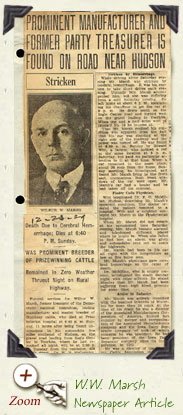
Source: Waterloo Daily Courier, August 16, 1922.
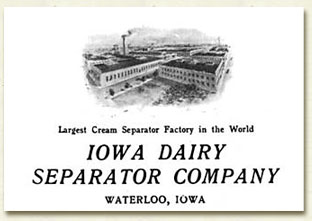
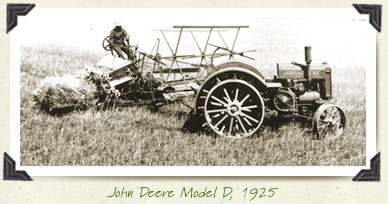
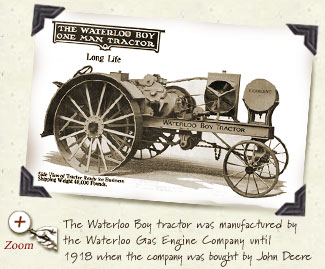
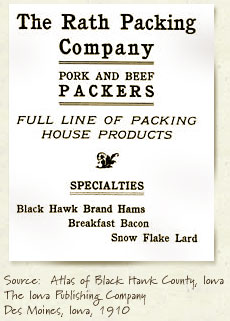
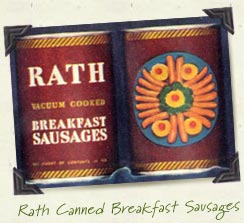
 on a conveyor which took them through the other stages of packing including the chill room, salt cellar, smoker, and freezing room.
on a conveyor which took them through the other stages of packing including the chill room, salt cellar, smoker, and freezing room.Source: Waterloo Daily Courier, June 27, 1922
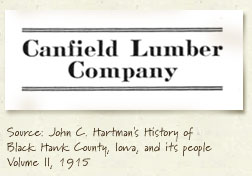
Source: John C. Hartman's History of Black Hawk County, Iowa, and its people, Volume II, 1915.
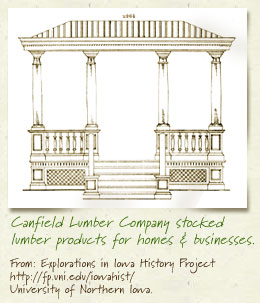
From: Explorations in Iowa History Project, University of Northern Iowa.

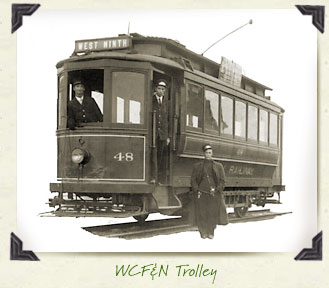
The WFC&N created a subsidiary company to build Electric Park. This amusement park provided much needed entertainment to the many factory workers and their families. You could ride the popular roller coaster, roll around in Barrel of Fun, or dance the night away. The WFC&N streetcars took you right to the park making transportation to the park easy.
The trolleys that ran to Cedar Rapids had open observation platforms, individual seats, and served meals! Those who used this service remember the plush cars and the speed at which it traveled (90 mph). As more and more families purchased their own vehicles, the company began losing money and made its last run to Cedar Falls in 1958.
Source: John C. Hartman's History of Black Hawk County, Iowa, and its people, Volume II, 1915.

Copyright © 2022 CampSilos | All Rights Reserved
National Standards | Silos & Smokestacks | Credits | Awards
Crafted by IFC Studios, a midwest Branding Agency.